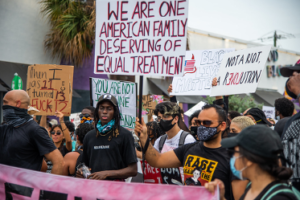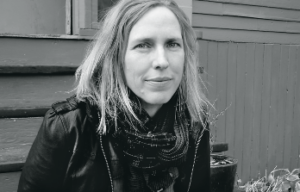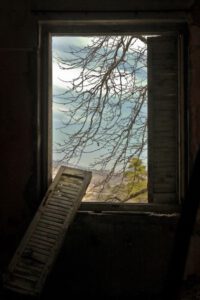You’ve probably already heard that The Mandalorian was nominated for 15 Emmy Awards, including Outstanding Drama Series and Outstanding Children’s Program. And even if you weren’t familiar with the term Mandalorian before, chances are you’ve seen one: Boba Fett, the green-armored bounty hunter in the classic Star Wars film is a Mandalorian, a member of a clan-based society within the Star Wars universe known for their code of honor and warrior ways. We never saw Boba Fett’s face, he didn’t say much, and he didn’t take up much screen time. All this didn’t stop him from becoming a fan favorite back in the day. But would such a character work as a protagonist of a series?
The Long March to Justice

When I was five years old, I announced my new discovery: “Negroes (the polite term at the time) are bad.” My parents tried to correct me, but I felt my logic was unshakable: When the radio reported a crime, the perpetrator was often black. They never said that a suspect was white. I didn’t know any black people in our segregated town, but I knew many white people, and none of them were criminals. This was an open-and-shut case in my five-year old’s mind.
A few weeks later, my father took me downtown to see a parade. He struck up a conversation with a black woman we were standing next to. She had a baby, who captured my interest, though I was more entranced by her Kraft Caramels (my favorite candy at the time) she shared generously with me. This, of course, completely shattered my baby bigotry.
When I was approaching middle age, I reflected on the incident. Only then did I realize that when I was young, parade-viewing areas – as well as everything else – were strictly segregated in Enid, Oklahoma. It must have taken some planning and more than a small amount of courage to arrange for us to stand in the “colored area” next to a friendly woman who just happened to have a cute baby and my favorite candies.
The issue of race did not come up often in our small, mostly white town (at least not in the white community), so I had little need to reflect on what I had learned until Emmett Till’s murder on August 28, 1955, made national news and provoked national outrage.
“Writing is how I process things”: An Interview with Miriam Toews

We met Miriam Toews at a reading in Hamburg on March 26, 2019. Toews was on a book tour to promote the German translation of her seventh novel, Women Talking. The novel is based on very disturbing events that took place between 2005 and 2008 in Bolivia. The German version, Die Aussprache, was published by Hoffmann und Campe in 2018. For her novel, A Complicated Kindness (2004), Miriam Toews won Canada’s most prestigious literary prize, the Governor General’s Award. Since Toews will not be physically present at the Frankfurt Book Fair 2020 to represent Canada, this year’s guest of honor, this interview will hopefully help tie us over until her next visit to Germany.
How well do you know the United States and Canada? A Quiz

Now that the national holidays of both Canada (July 1) and the United States (July 4) are upon us, it’s time to check how well you, our readers, know both countries. In my seminar, “Introducing North American Studies,” I’m always pleased with how much my students know about the States and, at the same time, shocked at how little they know about Canada. Let’s see if you fare better….
Download and enjoy the quiz – and don’t look at the answers yet!
2020 Haiku Contest

Just last month, the U.S. Consulate General Leipzig organized a Haiku contest for both high school and university students. The motto for this creative writing challenge was “Looking outside – Looking inside,” that is, noticing the connections between the change in season and the change in one’s internal landscape. Students were asked to put their thoughts and feelings into a Haiku consisting of three lines and 17 syllables in total.
The consulate received about 100 submissions from eight German states and places as far away as Nigeria. American poet and now also haiku contest judge, Jennifer Kronovet, selected 10 of her favorite Haikus and commented on her top three.
The blog editors congratulate all winners. Keep up the good work!
Digital Age Ruminations: The U.S. Humanities and Employability Concerns
As anyone who has scanned recent U.S. education headlines knows, the humanities face a crisis of legitimation amidst a tech-driven economy in which the mantra of ‘job preparedness’ seems to have trumped the traditional academic notion of humanist scholarly inquiry. Faced with the task of defending the relevance of their field of study, academics have justifiably cited the critical thinking skills that are gained via a humanities education.

More often than not, however, many of these very same academics proceed to undermine this eminently legitimate point by claiming that a university education should bear no relation to vocational concerns. Indeed, whenever anyone parrots out this shaky line of reasoning, I find myself pondering the following question: In what sense has the American university ever stood entirely apart from concerns about employability?







